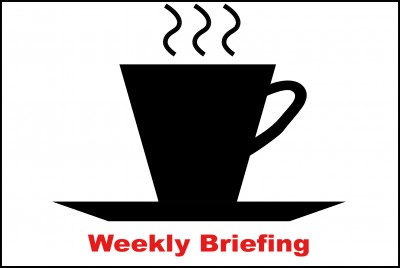Weekly Briefing: Austrian Efforts in International Politics, IAEA Concerns and Russian War in Ukraine
Austria is strengthening its efforts in foreign policy and international cooperation. The IAEA is expressing its concerns about nuclear security in Iran and Ukraine. The Russian war in Ukraine is causing serious questions about human rights and European security. The Find out more about this week's developments.
 Take five minutes to catch up on this week’s essential news! / Picture: © Wikimedia Commons / Filip Nohe [CC BY-SA 2.0 (https://creativecommons.org/licenses/by-sa/2.5/deed.de)], modified and edited
Take five minutes to catch up on this week’s essential news! / Picture: © Wikimedia Commons / Filip Nohe [CC BY-SA 2.0 (https://creativecommons.org/licenses/by-sa/2.5/deed.de)], modified and edited
Austrian Efforts in International Politics
Austrian Federal Chancellor Karl Nehammer met the Estonian Prime Minister Kaja Kallas in Tallinn for working talks. The meeting focused on bilateral relations, digitization, the war in Ukraine and energy transition.
The Austrian Ministry of Justice under Alma Zadic welcomes stricter prosecution of environmental crimes and a united effort to sanction Russian oligarchs at a European level.
Slovenia's recently elected government this week received Austria's Foreign Minister Alexander Schallenberg as its first official international guest.
Austria's Foreign Minister Alexander Schallenberg visited the Polish capital Warsaw for a working visit. There, Foreign Minister Schallenberg explained that Poland is the hub for Ukraine's assistance.
The Concerns of the IAEA
The International Atomic Energy Agency prepares a visit to the Zaporizhzhya nuclear power plant in the Russian-occupied zone of Ukraine, despite the Russian occupation and Kyiv's defensiveness.
Due to recent developments, the Board of Governors of the International Atomic Energy Agency reprimanded Iran's behavior toward the UN nuclear watchdog.
Russian War of Aggression in Ukraine
The human rights situation in Ukraine, as well as in the rest of the world, was recently the focus of the Human Rights Committee in the Austrian Parliament.
All parliamentary groups in the Human Rights Committee of the Austrian Parliament adopted a resolution calling for an investigation and prosecution of alleged war crimes committed by Russia during its aggression against Ukraine.
The planned EU embargo on Russian oil in response to the war of aggression in Ukraine will have far-reaching consequences for Europe and Austria.
A unique exhibition awaits you from today in the Gallery of the Polish Institute in Vienna. The exhibition shows the first days of the war in Ukraine from the point of view of Ukrainian artist and designer Hélène Litorelle and gives an insight into her thoughts and experiences.
Relations with Western Balkans
As part of the "Regional Strategic Leadership Course," high-ranking civilian and military leaders from the Western Balkans met in Austria in early June to receive joint training in strategic decision-making.
Austrian Federal President Alexander Van der Bellen met with his counterparts from Croatia and Slovenia, Zoran Milanovic and Borut Pahor, in Croatia for the traditional triennial meeting.
What Else Happened This Week?
The Austrian Ombudsman Board began its work 45 years ago. Since then, according to the Austrian constitution, anyone who suspects maladministration can turn to the Austrian Ombudsman Board.
A new government program focuses on supporting immigrant women and their qualifications to integrate them into the Austrian labor market.
In a report by the Transparency International Austria organization, Vienna was named the most transparent city in Austria.
Austria's successful music grant program enters its eighth round. The Austrian Foreign Ministry will nominate 25 new acts for "The New Austrian Sound of Music".
In the recently published Fundamental Rights Report of the Agency for Fundamental Rights of the European Union, the organization addressed the far-reaching impact of the Covid-19 pandemic on people's social rights.



